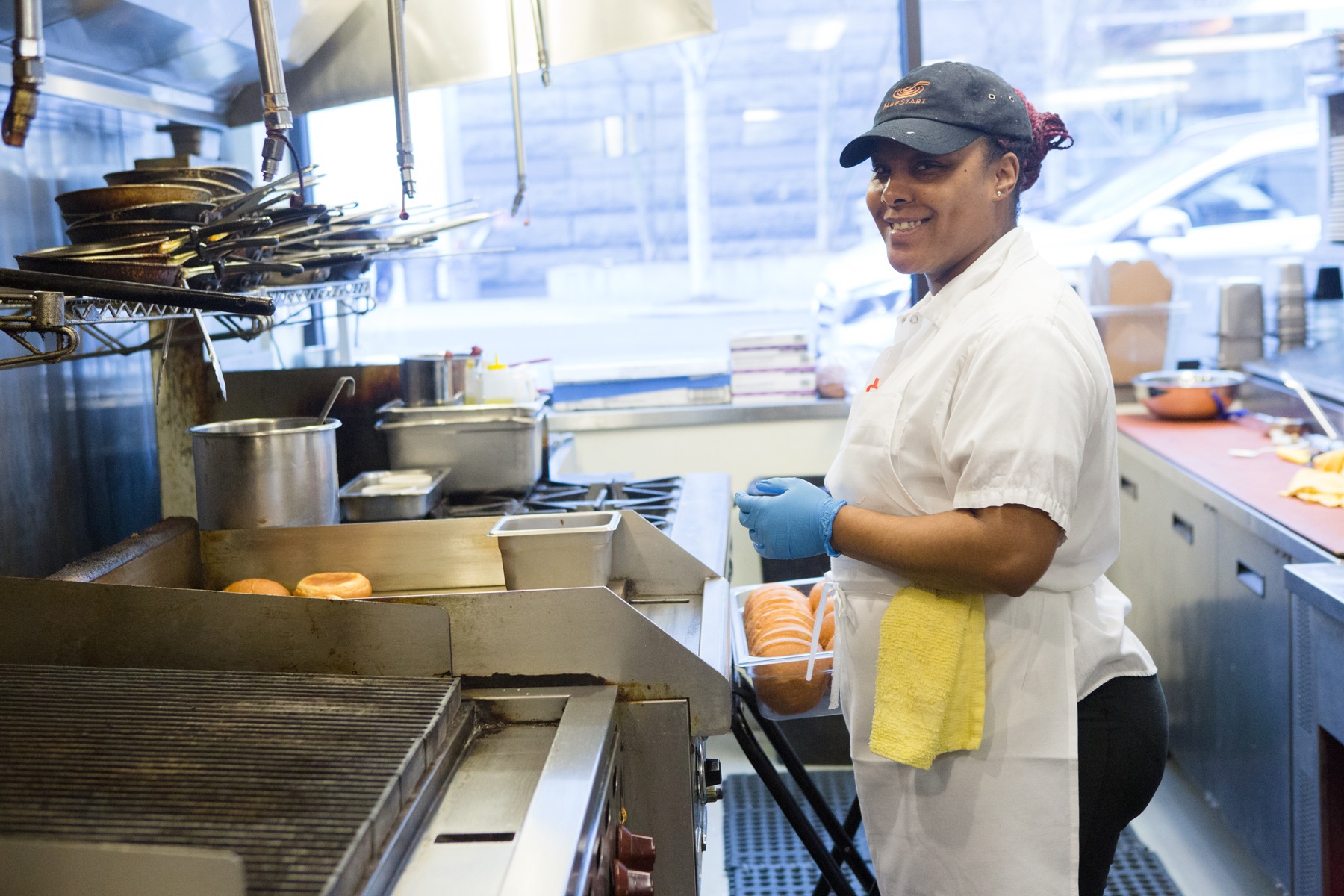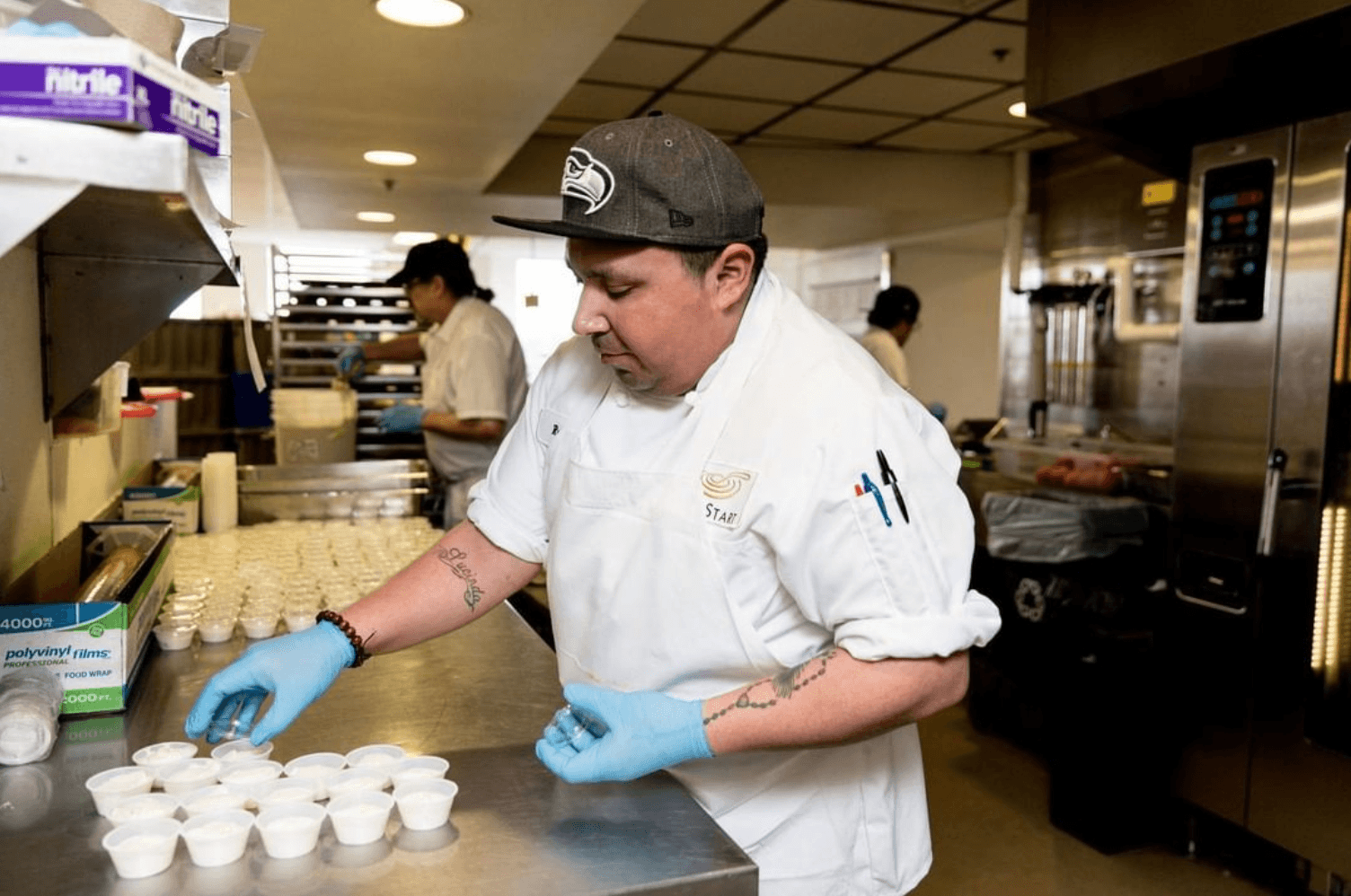Rising to the challenge: How this Seattle nonprofit is making a difference during the COVID-19 outbreak

As the COVID-19 outbreak progresses, Tableau Foundation is doing its part to support communities and organizations affected by the crisis. We recognize that we have a role to play as a funder with deep roots in Seattle and communities across the world, and with strong partnerships with our grantee organizations. These are unprecedented times, and we are working to respond swiftly and thoughtfully to evolving needs. So far, we have:
- Set up two funds for employees to contribute funding with a double match from Tableau:
- Global COVID-19 Response Fund supports front-line health workers around the world.
- Seattle Foundation Coronavirus Response Fund supports people disproportionately affected by the outbreak in the Seattle area.
- Established a $1.4 million fund to support our nonprofit partners through the crisis. We are supporting our partner organizations in everything from pivoting their business model to enabling remote work to other financial concerns that arise.
We will update this space as our commitments evolve. Below, we wanted to highlight the work of one of our grant partners, FareStart, and how they rapidly pivoted their model to respond to the outbreak and continue serving the Seattle community.
The team at FareStart felt the effects of the COVID-19 outbreak right away. FareStart, a Seattle-based nonprofit and a Tableau Foundation partner, that provides job training to people with barriers to employment—homelessness, criminal justice system involvement, past unemployment—who are going through FareStart’s job training program. Like all organizations in the food service industry, they knew they would be hard hit by the outbreak. At their restaurant near downtown Seattle, just blocks from Amazon’s headquarters, foot traffic dwindled practically overnight as the news of the virus intensified. The same thing happened at their two cafes around the city. Orders placed through their popular catering service ground to a halt.
Being flexible in a time of crisis
Small local businesses—particularly those in the food industry—are facing acute uncertainty as the coronavirus spreads throughout the world. FareStart, though, is determined to rise to the challenge. “We naturally did what FareStart does, which is try to think about the problem in an innovative way,” says Megan Hampson, the organization’s Director of Philanthropy. “We were founded on the idea of providing healthy, nutritious meals to vulnerable populations, like homeless shelters, and training people from vulnerable populations for jobs.” Looking at the effect the outbreak was beginning to have on FareStart’s restaurants, cafes, and catering operations, Hampson says they decided to focus their resources and people-power in on their meal delivery program, which since 1992 has delivered over 10.5 million meals to people in need across the Seattle community. Making this shift will enable FareStart to continue supporting people made especially vulnerable by the outbreak across Seattle.
“We reached out to our government and community partners to let them know that we have the capability to scale up and provide emergency meals—how can we help?” Hampson says. “We went from thinking about how we can solve this problem to how we can be a part of the solution.”

One of the first organizations to respond to FareStart’s call was Plymouth Housing, a nonprofit supportive housing provider in the Seattle area. Their residents all fall into the categories of people who will be especially hard hit by the virus, either medically or financially. Many are living on low incomes without access to sick leave or health insurance; many have pre-existing health issues that make them particularly vulnerable to the virus. All need to be sure that they’ll have access to food during this time. Plymouth Housing typically provides residents meals from their communal kitchens, but have had to stop serving due to restrictions brought about by the virus. Because FareStart is equipped to prepare meals, it's able to help Plymouth Housing continue to meet its residents’ needs.
FareStart figured out what it would take to provide daily meals to Plymouth Housing’s 265 residents, and to help them pivot their business model to meet that need, Tableau Foundation allocated FareStart a portion of the $1.4 million fund they’ve set up for COVID-19 response.
Looking to the future
Now that FareStart is prepared to focus on providing meals to the community during this crisis, the next question is: Where else can they help? “We’re constantly assessing that,” Hampson says. While Plymouth Housing was their earliest partner, they've now expanded to reach even more people through other organizations like the Seattle Indian Health Board Elders Program, Navos Mental Health Solutions, and the Downtown Emergency Services Center, a homeless services provider where FareStart is currently allocating the bulk of its meals. They’re also partnering with more food service businesses around the city, like Tom Douglas Restaurants, to scale up meal provision as they’ve had to adjust their business models. “Those are the questions right now: What’s the need? And how does it make sense for us to partner with others to fill it?”
Since the COVID-19 outbreak began, FareStart's efforts have scaled significantly. Some highlights:
- FareStart has served over 91,999 locally in Seattle meals since the beginning of emergency response to COVID-19.
- They plan to prepare up to 15,000 meals per day out of FareStart kitchens.
- Working with a growing list of external partners—including First & Goal, the hospitality provider at CenturyLink Field—they expect to be able to provide 50,000 meals per day.
FareStart is just one organization in Seattle, but its challenges likely mirror many others faced by organizations across the country. Currently, FareStart is sharing toolkits and resources with food-service organizations in other cities through its national membership network and consulting program, Catalyst Kitchens. They're prepared to help others learn from their efforts and empower them to serve people in need. Even though the COVID-19 crisis continues to grow, FareStart is already making an impact by using their core competencies to ensure people remain healthy and supported during this outbreak—and their approach of forming partnerships early and responsively is one that could be effective in communities everywhere during this outbreak.
If you would like to contribute to FareStart’s ongoing efforts amid the COVID-19 outbreak, visit their website here.
Relaterade berättelser
Subscribe to our blog
Få de senaste Tableau-uppdateringarna i din inbox.








